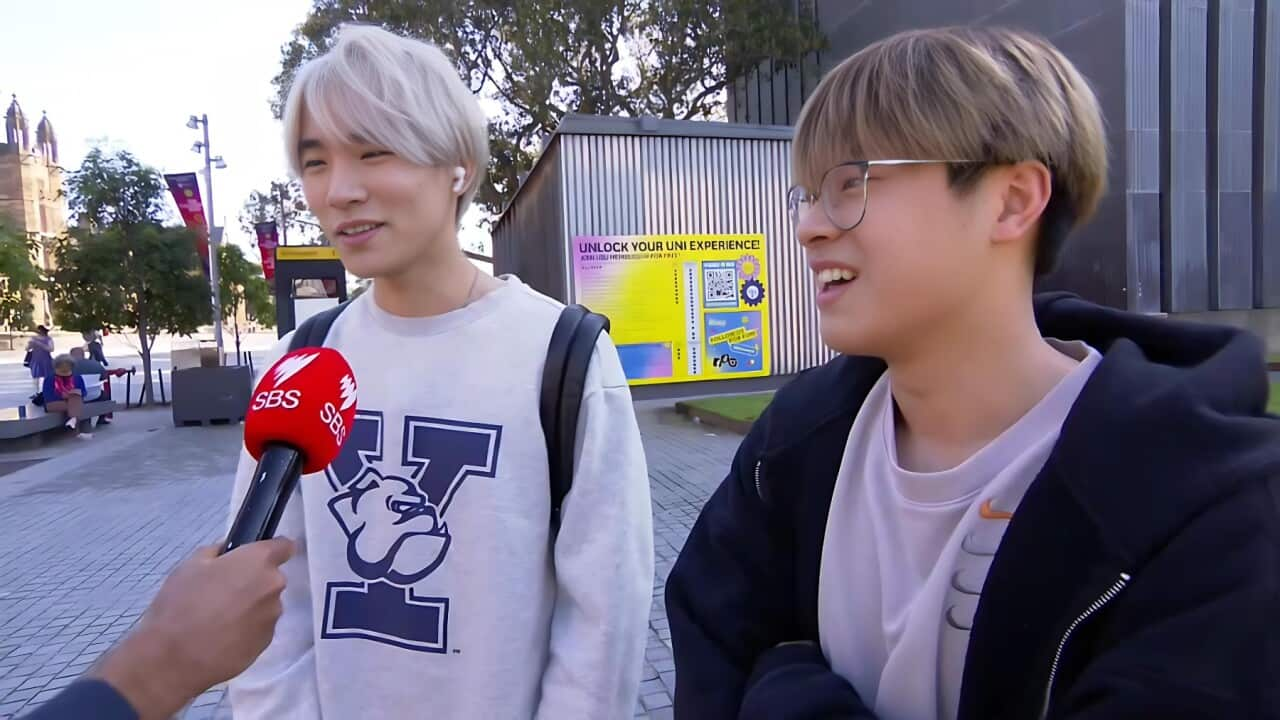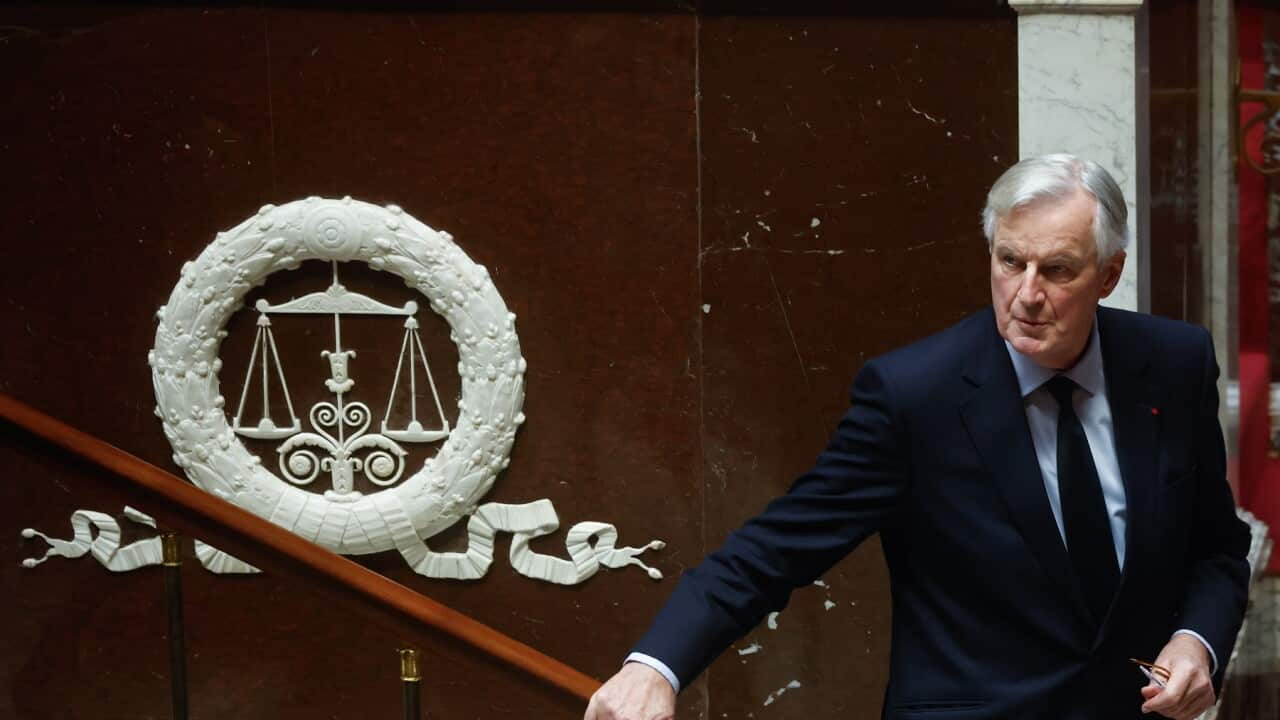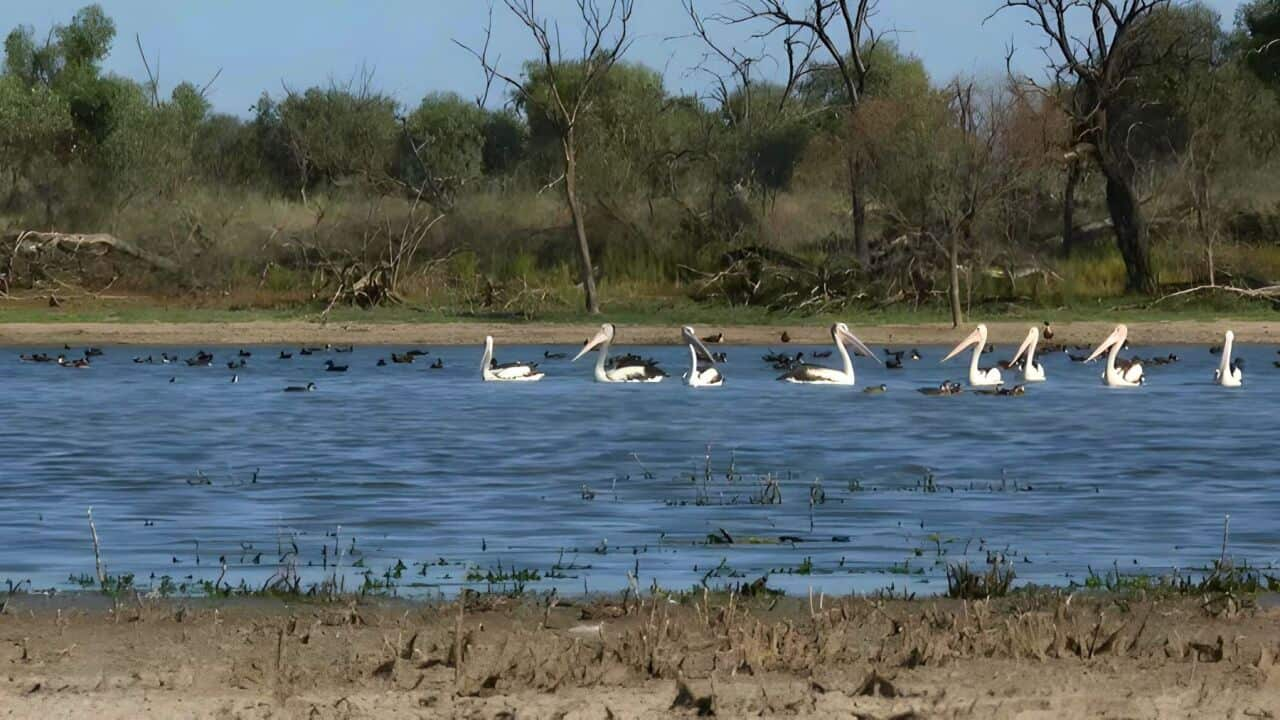TRANSCRIPT
Coming from China to study economics and business, Alex and Eric are well educated on the tenets of fiscal discipline.
Naveen: What are you guys spending money on the most week to week?
Eric: Eating
Alex: Eating and video games!
Eric: We don't usually buy luxuries.
Alex: We think we should like use those money or something for like useful stuff.
But the money they do spend has proved a valuable economic sweetener in 2023 - as other Australian households trim their budgets.
Here's NAB Economist - Brody Viney.
"International students have definitely played a significant role in keeping the economy growing over the past year. So out of the 1.5% growth that year, that's more than half of the growth was driven by that recovery and international students."
The number of international students grew to more than 640,000 last year, surpassing pre-pandemic levels.
Their spending as a group, bumped up last year's G-D-P growth by point eight of a percent.
While much of the money flows into higher education directly, sixty per cent of spending is going towards goods and services, as Phil Honeywood from the International Educators Association of Australia explains.
"The return of international students should be welcomed, they help Australia thrive. They do the job that a lot of young Australians won't do, in terms of part time employment with a study full time. And crucially, they buy new bedding when they arrive here. They contribute to restaurants and appearance come as international tourists, and really help the economy through tourism as well."
International Students remain the main drivers of population growth, today's ABS data recording more than 82,000 arrivals in January.
That booming population has helped to stabilise the Labour market, but as Mr Viney explains - that migration has also seen rents soar.
"As that population surge starts to slow down, a lot of which we think will will happen, you know, somewhat naturally, as the population has caught up to where it otherwise would have been. That should start to take a little bit of the pressure out of the rental market. "
Many in the higher education sector fear the international student boom is already over.
The visa intake is being tightened by the government - as part of its overhaul of the migration program.
The number of student visa approvals has fallen sharply since 2022.
Just over 90,000 were granted in the last quarter.
Troy Williams is from the Independent Tertiary Education Council - and says firms are scrambling to adapt.
"The reality is the new migration strategy really does detail students wanting to study with independent tertiary education providers. So whereas many providers were looking for growth and to create jobs, the reality is that they'll be looking to put off staff."
The government admits the changes are difficult - but maintains its necessary to foster high quality students.
But as Brody Viney explains, the broader economic impact of the student downturn is likely to be offset by improving economic conditions later this year.
"Some of those pressures on households around inflation will start to ease. And so we should see some offsetting support for the economy coming from coming from household. So we do expect consumption growth to start to pick up from from a household perspective over the second half of this year."












